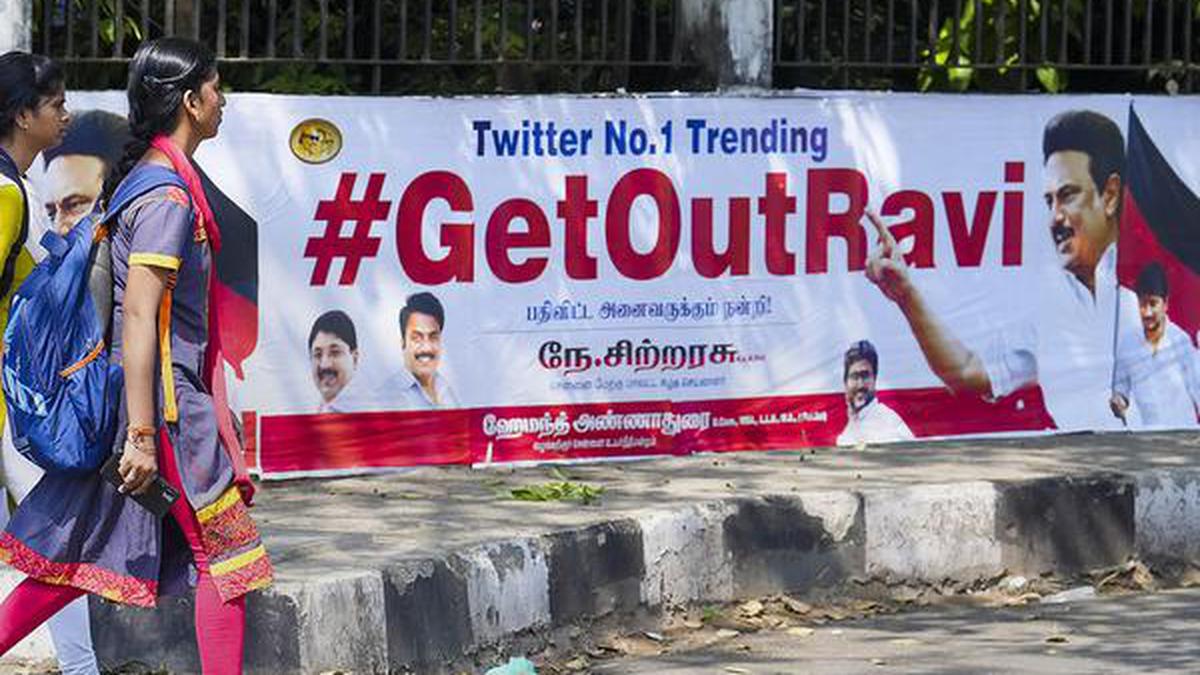
States v. Governors: Delay in assenting to Bills | Explained Premium
The Hindu
With the issue of indecision by the Governor on passed Bills agitating some States, The Hindu decodes what role the assent of a Governor plays; the extent of autonomy enjoyed by the Governor, and whether his actions can be subjected to judicial scrutiny.
The story so far: The Supreme Court on November 10 flagged that the “constitutional deadlock” created by Tamil Nadu Governor R.N. Ravi’s failure to assent to twelve crucial Bills passed by the Legislature was a “serious concern.” On the same day, the Bench led by Chief Justice of India (CJI) D.Y. Chandrachud also chided Punjab Governor Banwarilal Purohit, observing that not giving assent to Bills by calling a legislative assembly session unconstitutional was akin to “playing with fire.” The Court went on to highlight that the Governor is only the ‘titular head’ and that Bills being kept in limbo could result in the potential breakdown of parliamentary democracy.
In the recent past, prolonged delay in assenting to Bills has become a source of confrontation between Opposition-ruled States and their governors — provoking a battery of State governments to approach the Supreme Court alleging that such conduct is stymieing day-to-day governance. Tamil Nadu has accused Governor R.N. Ravi of positioning himself as a ‘political rival’ and creating a constitutional deadlock by sitting on the Bills for months. Kerala has moved two separate petitions against Governor Arif Mohammed Khan accusing him of trying to “defeat the rights of the people” of the State by indefinitely sitting on crucial Bills, especially those addressing post-COVID public health concerns.
Punjab has contended that seven of its Bills have been pending consideration by the Governor since June, threatening to bring the administration to a “grinding halt.” Similarly, a collective of academicians, including former Vice Chancellors, last week urged the West Bengal government to approach the SC on the issue of Bills pending with the Governor, owing to which the search and selection committees for 31 Universities in the State have been stalled.
In the wake of these rifts, The Hindu decodes what role the assent of a Governor plays; the extent of autonomy enjoyed by the constitutional authority and whether his actions can be subjected to judicial scrutiny.
Assent of the Governor or the President is necessary for a Bill passed by the legislature to become law. The Constitution is, however, categorical about Money Bills, which are automatically considered to have a Governor’s assent. When a Bill passed by both Houses of the Legislature is presented to the Governor for his assent, he is empowered under Article 200 of the Constitution to exercise any of four alternatives —to give assent, withhold assent, return the Bill to the Legislative Assembly for reconsideration, or reserve it for the consideration of the President.
If the Governor chooses to withhold assent, he should return the Bill ‘as soon as possible,’ requesting the Assembly to reconsider the proposed law or any specified provisions or suggest amendments. However, the Assembly is not obligated to accept these recommendations and can pass the Bill again in its original form. . This time, the Governor is constitutionally bound to either give assent to it or reserve it for the President’s consideration. This provision affirms the primacy of the legislature comprising elected representatives of the people over the constitutional head of the State in the legislative exercise. A Bill can be reserved for the President’s consideration if the Governor is of the opinion that it would endanger the position of the concerned High Court by whittling away its powers.
However, there is no timeline prescribed for Governors to make a decision with regard to a Bill. This loophole is often misused to delay legislation — a manoeuvre called a ‘pocket veto’. Similarly, no timeline has been outlined for the President to decide on the outcome of a Bill. There is, however, a time period of six months prescribed for the State Assembly to reconsider a Bill if the President decides to refer it back to the House.













